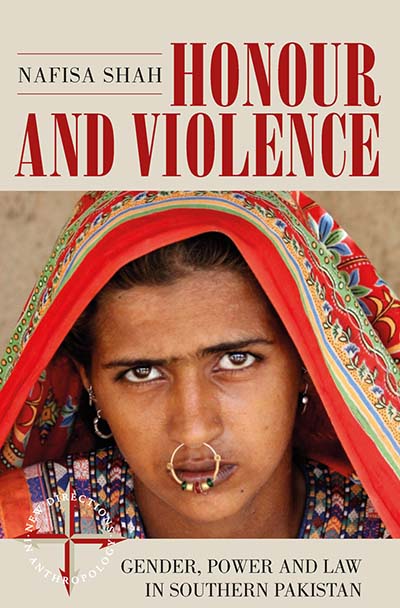 The following is an interview with Nafisa Shah about hew new book Honour and Violence: Gender, Power and Law in Southern Pakistan.
The following is an interview with Nafisa Shah about hew new book Honour and Violence: Gender, Power and Law in Southern Pakistan.
1) When did you begin working on Honour and Violence? Can you briefly tell us about your journey as a journalist, scholar, and politician following honor killings in Pakistan?
Honour and Violence is a process, a part of the journey, and not a product or a culmination. It is a coming together of different perspectives in the different roles through which I studied the phenomenon of karo kari, a practice that allows men to take lives of women in his family if accused and seen to be engaging in relationship outside or before marriage by invoking honour violation.
In 1992, as a young and fiery journalist, I travelled to Kashmore, and wrote the first story on honour based customs and practices in Upper Sindh for Newsline, a monthly news and features magazine headed by a woman editor, the late Razia Bhatti.
Then a few years later, as a Reuters fellow at Green College, Oxford I followed it up with a longer piece. My supervisor there, late Helen Callaway, was the first scholar to suggest I needed to convert these shorter journalistic pieces to something more longterm and showed me the academic route. And that’s where I built on whatever I saw and used the anthropological lens, which would allow me to communicate the problem to the wider world. Continue reading “An Interview with Nafisa Shah, Author of Honour and Violence”


